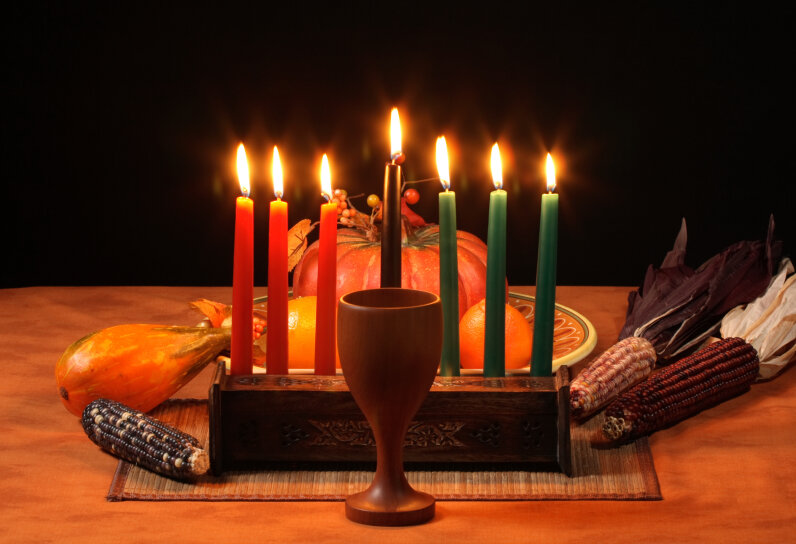Also spelled KWANZA (Swahili: “First Fruits”), African-American holiday, celebrated each year from December 26 to January 1; it is patterned after various African harvest festivals.
Kwanzaa was created in 1966 by Maulana Karenga, a black-studies professor at California State University at Long Beach, as a nonreligious celebration of family and social values. By the early 1990s it was estimated to have more than 5 million celebrants. Each day of Kwanzaa is dedicated to one of seven principles: unity (umoja), self-determination (kujichagulia), collective responsibility (ujima), cooperative economics (ujamaa), purpose (nia), creativity (kuumba), and faith (imani).
Each evening family members gather to light one of the candles in the kinara, a seven-branched candelabra, and discuss the principle for that day; often gifts are exchanged. On December 31 the family joins other members of the community for a feast, called the karamu.
